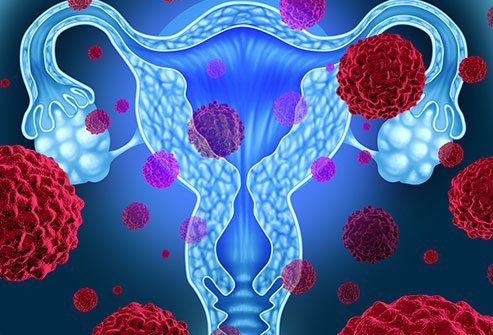Is Uterus Cancer Fatal?
Is uterus cancer fatal?

Uterine cancer is not fatal when it is diagnosed and treated in the early stages.
- Generally, a 5-year survival rate for patients in stage 1 of uterine cancer is 90%.
- However, the 5-year survival rate can vary depending on the extent to which cancer has spread.
The 5-year survival rate of cancer confined to the uterus (localized uterine cancer) is 95% whereas for cancer that has spread to nearby organs (regional uterine cancer) and distant organs or tissues (distant uterine cancer) is 69% and 17%, respectively.
The 5-year survival rate of uterus cancer can be seen in the table below.
| SEER* stage | The 5-year relative survival rate (%) |
|---|---|
| Localized | 95 |
| Regional | 69 |
| Distant | 17 |
| All SEER stages combined | 81 |
| *SEER: Surveillance, Epidemiology, and End Results Program | |
What is uterine cancer?
Uterine cancer is the most common cancer affecting the reproductive system of women. It starts when healthy cells in the uterus grow out of control, forming a mass of tissue or tumor. A tumor can be cancerous or benign/noncancerous.
Benign conditions of the uterus include
- Benign polyps: Abnormal growths in the lining of the uterus.
- Fibroids: Noncancerous tumors in the muscles of the uterus.
- Endometriosis: A condition in which the inner lining of the uterus (endometrium) grows outside the uterus.
- Endometrial hyperplasia: A condition in which there is an overgrowth of the healthy cells of the lining of the uterus (endometrium).
Cancer of the uterus includes
- Adenocarcinoma: This is the most common type of uterine cancer and accounts for 80% of all uterine cancers. It is commonly known as endometrial cancer because it develops from the cells in the endometrium.
- Sarcoma: This type of uterine cancer mainly affects the uterine muscles (myometrium). Sarcoma accounts for about 2% to 4% of cancers. Different types of sarcoma include
- Leiomyosarcoma
- Endometrial stromal sarcoma
- Undifferentiated sarcoma
Who is at risk for getting uterine cancer?
The following factors may increase the risk of uterine cancer
- Age over 50 years
- Obesity: Overweight women produce extra estrogen, a hormone that increases the risk of uterine cancer.
- White women are more likely to develop uterine cancer; however, black women are more likely to develop advanced uterine cancer.
- Genetics: Uterine cancer runs in the family.
- Diabetes
- Breast cancer
- Colon cancer
- Ovarian cancer
- Drugs like Tamoxifen
- Radiation therapy
- Fatty foods
- Estrogen imbalance
What are the signs and symptoms of uterine cancer?
Women with uterine cancer may experience one or all the signs and symptoms or no symptoms at all
- Unusual vaginal bleeding, spotting or discharge
- Pain in the pelvic area
- Abnormal results from a Pap test
What are the treatment options for uterine cancer?
The treatment options depend on the stage and type of uterine cancer. The most common treatment options include
- Surgery: Hysterectomy or removal of the uterus may be either simple (removal of uterus and cervix) or radical (removal of the uterus, cervix, the upper part of the vagina and nearby tissues). Complications of surgery include pain and tenderness.
- Radiation therapy: Radiation of high frequency destroys the cancerous cells.
- Chemotherapy: Chemotherapy uses medications to kill cancerous cells.
Other drug therapies include
- Hormonal therapy
- Immunotherapy
- Targeted therapy
